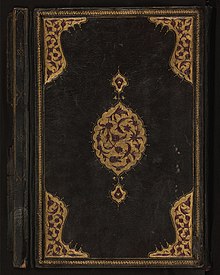Ibn Kemal
| Ibn Kemal | |
|---|---|

A copy by Uthman ibn Mansur of a Gloss on Commentary on the Qur'an by Ibn Kemal
|
|
| Born |
Şemseddin Ahmed 1468 |
| Died | 1536 |
| Era | 15th-century |
| Religion | Islam |
| Main interest(s) | Ottoman history |
| Notable work(s) | Tevarih-i Al-i Osman (“The Chronicles of the House of Osman”) |
Şemseddin Ahmed (1468–1536), better known by his pen name Ibn Kemal or Kemalpaşazâde ("son of Kemal Pasha"), was an Ottoman historian,Sheikh ul-Islam, lawyer and poet.
He was born into a distinguished military family in Edirne and as a young man he served in the army and later studied at various madrasas and became the Kadı of Edirne in 1515. He became a highly respected scholar and was commissioned by the Ottoman ruler Bayezid II to write an Ottoman history (Tevarih-i Al-i Osman, "The Chronicles of the House of Osman"). During the reign of Selim I, in 1516, he was appointed as military judge of Anatolia and accompanied the Ottoman army to Egypt. During the reign of Suleiman I he was appointed as the Sheikh ul-Islam, i.e. supreme head of the Muslim ulema, a post which he held until his death.
His most famous history work is the Tevarih-i Al-i Osman (“The Chronicles of the House of Osman”), a history of the Ottoman Empire which provides the most original and important source material now extant on the reigns during which he himself lived. Although best known as a historian, Kemalpaşazâde was also a great scholar and a talented poet. He wrote numerous scholarly commentaries on the Quran, treatises on jurisprudence and Muslim theology and philosophy, and during his stay in Egypt he translated the works of the Egyptian historian Abu al-Mahasin ibn Taghribirdi from Arabic. He also wrote in Arabic, a philological work entitled Daqaʿiq al-Haqaʿiq ("The Subtleties of Verities"). His best poetical works include the Nigaristan ("The Picture Gallery"), written in Persian and modeled upon the Būstān and the Golestān of Saadi; a poem, Yusuf ü Züleyha, in rhymed couplets retelling the story of Joseph and Potiphar's wife; and Divān ("Collected Poems"), consisting mainly of lyrics.
...
Wikipedia
